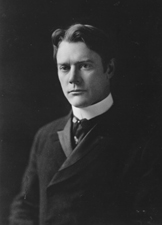Gov. Bill Richardson’s fluent switching to Spanish from time to time in his first

legislative address was an artful reminder to the English-only dummies: New Mexico is a state full of second languages, always will be, and always has been, although not always so proudly.
The former U.S. ambassador to the United Nations did not need to wait for translation of his linguistic departures from the text. Each time, the applause or laughter was immediate on the part of the crowd in the House chamber — well, half the crowd. Forty percent of the Legislature is Hispanic, as is the new governor, the new chief justice, the attorney general, secretary of state, treasurer and auditor. No governor in modern times — not even Toney Anaya or Jerry Apodaca — was able to switch smoothly to Spanish.
Watching the perhaps too exuberant reaction I was reminded of a now 100-year-old record that fascinated me when I was researching a Millenium piece for the Albuquerque Journal. It was the transcript of hearings by a U.S. Senate subcommittee considering, as others had before, if New Mexico was ready for statehood. New Mexicans had been waiting 55 years for equal footing while neighboring states boomed.
It is obvious from the testimony that the witnesses wanted to impress the powerful men from Washington who for the first time had bothered to hold statehood hearings out here in the forsaken territory itself. It was equally obvious that the Senators had no understanding of the conquered people in this arid land.
The Senators arrived by private railroad car in November 1902, and their first session was at the Casta¤eda Hotel by the railroad station at prospering East Las Vegas (pop. 2,385.) U.S. Sen. Albert Beveridge, R-Ind., presided.
“The committee noticed in driving around town (by carriage) that nearly all the signs were in Spanish where they have groceries and meat markets. What is the reason for that?” Beveridge asked local school superintendent Enrique Armijo.
Armijo: “The majority of the people talk Spanish…”
Beveridge: “How long have you talked English? I observe that you talk a little bit brokenly.”
Armijo: “Since 1874. . .”
Reviewing the docket of Justice of the Peace Jesus Maria Tafoya, Beveridge said, “Who wrote this English for you?”
Tafoya: “I did it myself.”
School teacher Georgia Murray, a new arrival from Wisconsin, testified about her elementary students, in her words: “They have not perfect English.” She and other teachers said the Hispanic children tended to drop the English among themselves and in their homes.
The subcommittee moved on to Santa Fe, where a professional interpreter named Jose D. Sena testified: “The poorer people are very anxious to learn the English. They learn it as fast as they can. Sometimes the people who live in my neighborhood, they go out to work in families that speak English, and I meet them and speak to them in Spanish and they will answer me in English.”
Sen. Henry Heitfeld of Idaho was curious about cultural segregation. “In Las Vegas, as I understand it, the two elements are divided by two towns?”
Sena: “Yes, sir. . .”
Heitfeld: “Is that the case here (Santa Fe)?”
Albert Beveridge
Sena: “No, sir; I have not seen it so pronounced any place else as there. That was dying out, I thought, the last time I was there.”
Heitfeld: “Have you any other towns like that?”
Sena: “We have Albuquerque; there is the old town, which is Mexican,
and the new town is almost entirely American.”
In Albuquerque, chairman Beveridge questioned witness Nestor Montoya, another professional interpreter, about other things that proved this sure wasn’t Indiana.
Beveridge: “We saw the Santa Fe River yesterday at Santa Fe; it was a little stream not three feet wide. Farming is mostly along the streams, and is impossible in districts away from these streams, is it not?”
Montoya: “Yes, sir; it is. But they simply farm enough to raise for their own consumption, for fodder and forage.”
Beveridge: “The committee understands that in the country districts out away from the towns the people, instead of living in separate houses, as is the custom up in other states, live in little clumps of houses, called villages?”
Montoya: “Yes, sir.”
Beveridge: “Surrounded by a wall?”
Montoya: “Oh, no.”
Beveridge: “They live together, in other words?”
Montoya: “Yes, sir. In villages.”
In new Albuquerque (pop. 6,238), Mayor C. F. Myers said proudly, “It is what you might call strictly an American city.” He acknowledged that what a senator called “the other town,” with a population of 1,000 was not part of the city. But the mayor praised Hispaños as people who pay their bills. “Most of the merchants here would rather trust a Mexican than an American,” the mayor said.
Heitfeld asked witness William S. Hopewell, a railroad developer from Sierra County: “Is there any sort of race feeling, or disposition on the part of the Mexicans to get away from the Americans and to isolate themselves?”
Hopewell: “Not half as much as among the Americans, and that has been proven in the elections.”
In Las Cruces, federal Judge Frank W. Parker testified to the law-abiding nature of the Spanish, who might rustle livestock or kill someone in an argument, but almost never committed burglaries. They made good jurors, he said. “They’re not educated people, as a rule, but they have wonderful memories. They remember the testimony.”
And so it went — the first on-site survey of New Mexico and Arizona by a hostile committee from Washington. The chairman and the Republican majority recommended against statehood on the basis of under population, illiteracy, limited agriculture and the use of Spanish. The 57th Congress adjourned in 1903 without acting on Arizona and New Mexico.
The above account never made it into my Millennium article. There wasn’t enough space, and besides, it was divisive and regressive. But it’s true. And I think it is timely. (George W. Bush is the new James K. Polk and his mission to bring freedom to oil-producing peoples everywhere is the new Manifest Destiny.)
Anyway, it came to mind as Bill Richardson, probably the most prestigious international figure ever to become governor here, paid tribute to Spanish in the House chamber and the crowd responded as if it had been waiting a long time.
